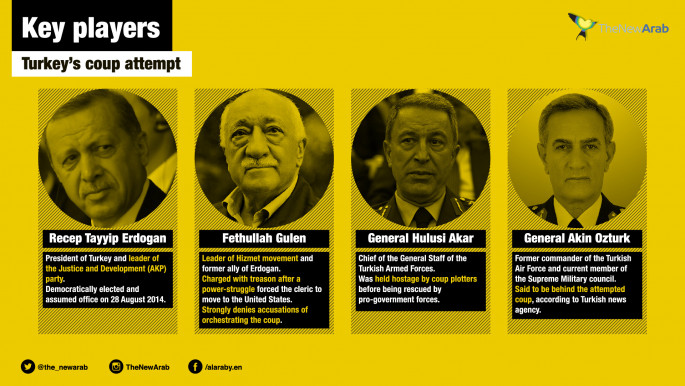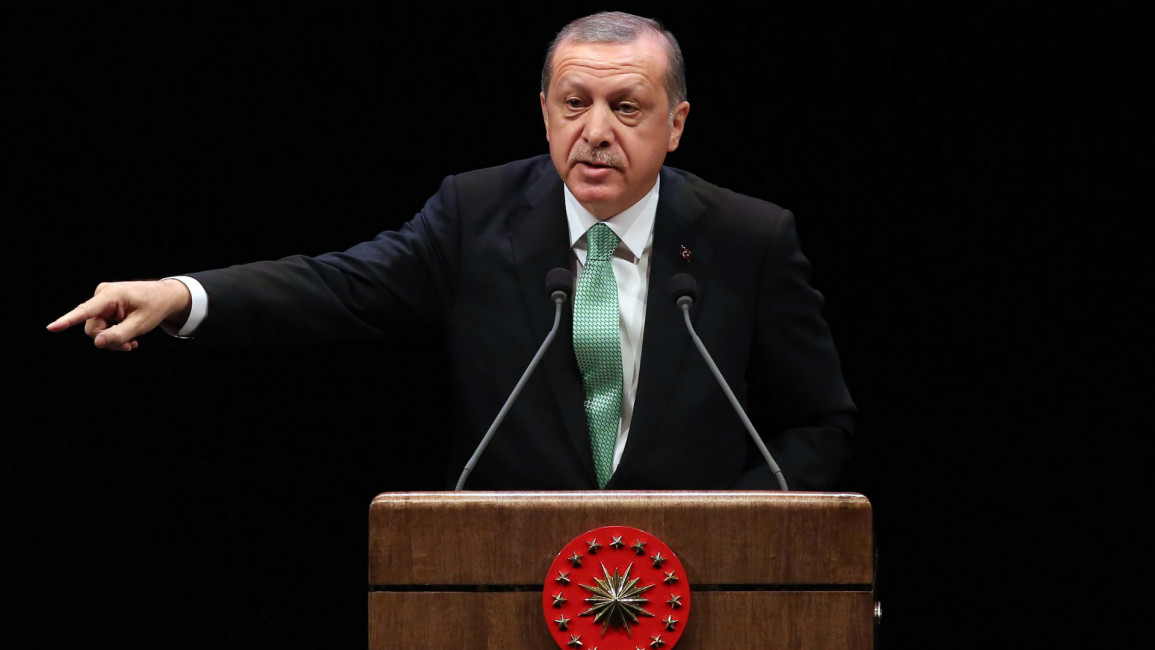Erdogan accuses Germany of harbouring 'Gulenist terrorists'
Turkish President Recep Tayyip Erdogan has criticised Germany for not extraditing individuals Ankara suspects of being involved in a failed July 15 coup attempt, accusing Berlin of harbouring “terrorist organisations”.
Speaking in Ankara on Thursday Erdogan said: “We are worried that Germany, which has been taking terrorist organisations like the PKK (The Kurdistan Workers Party), DHKP-C (The Revolutionary People's Liberation Party) under its wing, is now becoming a backyard for FETO,” a term used by Ankara to refer to supporters of US-based cleric Fetullah Gulen.
Tensions in Germany's Turkish community
“Germany has become one of the most important countries that terrorists seek shelter in. I am saying it clearly,” said Erdogan, speaking at an award ceremony at the presidential complex in Ankara.
The Hizmet movement of Gulen, a former Erdogan ally that Ankara accuses of orchestrating the attempted July 15 putsch, is linked to numerous cultural centres, schools, and associations, shops, and media organisations in Germany.
Many have reported facing intimidation from pro-Erdogan reporters since July 15 in the form of death threats, arson attacks, and vandalism of property with further calls to boycott Gulen-linked shops, education centres, and organisations.
Germany is home to a considerable Turkish population numbering some three million. Several Gulen-linked figures, suspected by Ankara of involvement in the July 15 coup attempt are believed to have fled from Turkey to Germany in its aftermath.
 |
Tension in German-Turkish relations
Germany flatly denies Ankara’s accusations that it harbours terrorists. Speaking on Thursday German Foreign Minister Frank-Walter Steinmeier said he was bemused by Erdogan’s latest comments.
"I cannot understand at all the remarks of President Erdogan about the security situation in Germany," said Steinmeier, speaking at a joint press conference in Berlin, adding that "Turkey remains an important country in the region in view of the trouble spots in Syria and Iraq. Thus, of course we would like to have good and constructive relations with Turkey."
In August Der Spiegel reported that Turkey’s secret service had requested the help of Germany’s Foreign Intelligence agency (BND) in order to round up Gulen supporters in Germany. The German magazine claimed at that time that Turkish intelligence wanted the BND to put pressure on German lawmakers to take action against Gulen supporters and begin extraditing them to Turkey.
Ankara has sent Berlin requests for at least 40 searches and three extraditions linked to Gulenist figures, according to Reuters.
However German Justice Minister Heiko Maas has said that Berlin will not extradite any suspects if they faced “politically motivated” charges in Turkey leading to a frosting of relations between the two states.
The defeated July 15 coup left 246 people dead and nearly 2,200 injured, according to Turkish authorities. Since, thousands of army personnel, civil servants, journalists, and even celebrated footballers have been arrested accused of links to Gulen and the failed July 15 coup. The sheer scale of arrests, enforced under emergency laws, has lead rights groups to express concern over the curtailing of civil liberties and freedoms of expression in Turkey.



